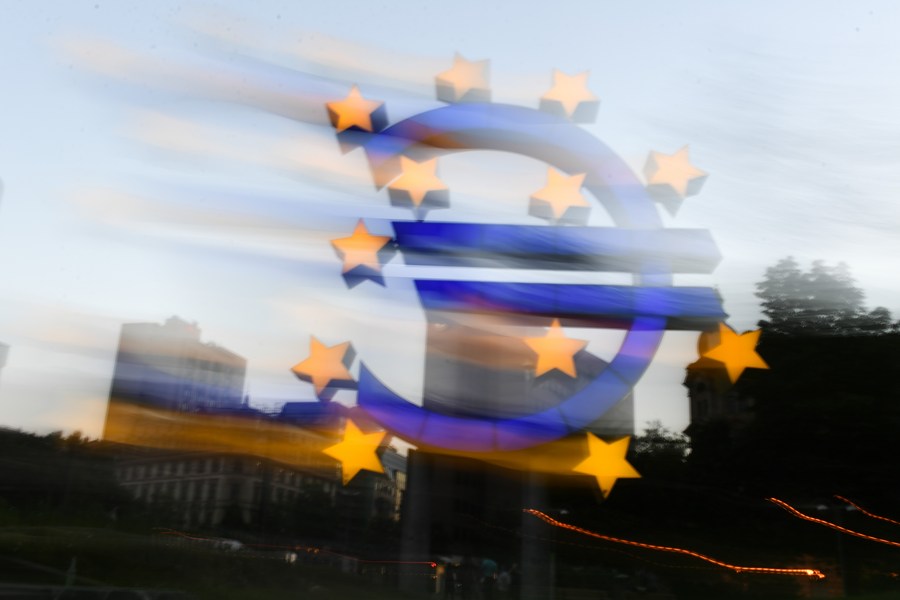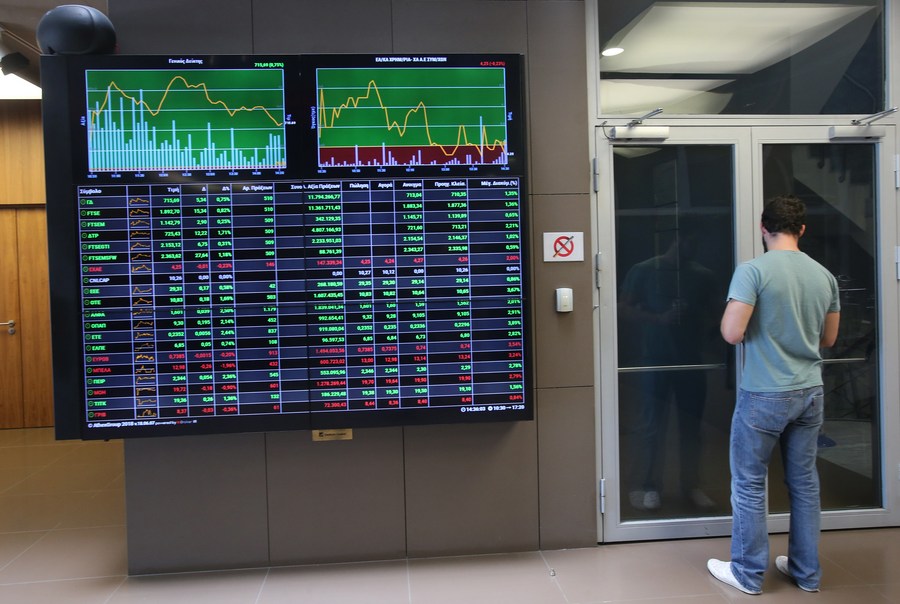
A customer buys fish at a market in Athens, Greece, on July 8, 2022. (Xinhua/Marios Lolos)
Stressing that the Greek economy is on a path of growth, Kenourgios cautioned that this growth is now threatened by high inflation and the energy crisis globally.
ATHENS, Aug. 20 (Xinhua) -- Greece on Saturday formally exited so-called "enhanced surveillance" status in the European Union (EU), a move dubbed by Athens as "a return to normalcy". Greek economic developments and policies had been monitored under the framework since 2018.
The shift signals the end of the close monitoring of the Greek economy by the EU institutions and brought Greece to the surveillance mechanism of the "European Semester," with conventional inspection by European authorities every six months.
It also concludes over 12 years of fiscal streamlining that started in 2010, which included three international bailouts from the EU and the International Monetary Fund (IMF) that totaled over 260 billion euros (260 billion U.S. dollars).

Photo taken on June 1, 2022 shows the Euro sculpture in Frankfurt, Germany. (Xinhua/Lu Yang)
"A 12-year cycle that brought pain to citizens now closes. It brought stagnation to the economy and division in society. Now a new, clean horizon emerges, one of development, unity and prosperity for all," Greek Prime Minister Kyriakos Mitsotakis said in a statement on Saturday.
Greece's exit from the enhanced surveillance mechanism was confirmed by the EU earlier this month through a formal letter to Greek Finance Minister Christos Staikouras.
"Greece is returning to European normality and ceases to constitute an exception in the eurozone," said Staikouras in a statement posted on the ministry's website.
The European Commission underscored in its letter that Athens has implemented the bulk of policy commitments it had undertaken, efficiently realized reforms despite the adverse conditions from the health and geopolitical crises, and bolstered considerably the resilience of its economy, Staikouras said.
"That development, along with the early repayment of the International Monetary Fund loans and the lifting of capital controls, concludes - after 12 years - a difficult time for our country," he said, attributing the development to the "great sacrifices of Greek society, the economic policy of the government and generally its reform efforts."
It has been a tough period for Greece and its people, said Dimitris Kenourgios, Professor of Finance at the University of Athens. But it also led to essential reforms that brought Greece to sustainable budgets and back to the path of growth, he added.
Greece's entry into the bailout mechanism in 2010 "was a solution to carry out the necessary reforms that the country deeply needed. Indeed, since 2014, the fiscal deficit has disappeared and the current account gap has significantly narrowed," he explained to Xinhua.
"Unfortunately, the price to pay was the dramatic fall of 25 percent in GDP compared to 2008. This GDP downfall resulted in a significant increase in the debt-to-GDP ratio," Kenourgios said.
Thanks to the "difficult but necessary reforms", the country has been stronger institutionally, in the labor market, in the public administration and with prospects of high and sustainable growth since the end of the bailouts in 2018, Kenourgios added.
Greece's emergence from enhanced surveillance status has multiple benefits, said Staikouras.
"It strengthens the position of Greece in the international markets, it offers an additional boost to its growth momentum and the attraction of investments, it gives degrees of freedom to economic policy exercising in the context of the existing rules applying to all member-states of the European Union, and brings closer the achievement of the final target we have set, i.e. the regaining of investment grade," the minister said.
Stressing that the Greek economy is on a path of growth, Kenourgios cautioned that this growth is now threatened by high inflation and the energy crisis globally.

A man stands by a stock ticker in the Athens stock exchange building in Athens, Greece, on Aug. 20, 2018. (Xinhua/Marios Lolos)
"The (European Union's) Recovery Fund, which is an important tool to change the country's growth model by boosting investments, exports and innovation, along with tourism and further reforms will be the key drivers of growth in the years to come," he said. (1 euro = 1 U.S. dollar) ■












